Brexit
No news, just speculation this week. We’re currently predicting nothing will change and the UK will leave the EU without a deal on Halloween, even though that is the only option that MPs seem to be able to agree that a majority of them don’t want.
There was a PQ, though, on Horizon 2020
Q – Gordon Marsden: To ask the Secretary of State for Business, Energy and Industrial Strategy, what discussions he has had with (a) Universities UK, (b) UK Research and Innovation, (c) Office for Students on whether the UK will participate in the Horizon Europe scheme from 2021 following the extension to Article 50.
A – Chris Skidmore:
- I chair a High Level stakeholder group on EU Exit. This group meets monthly to discuss EU Exit issues related to universities, research and innovation and is attended by a wide range of stakeholders including Universities UK, UK Research and Innovation and Office for Students.
- Horizon Europe is still being negotiated through the EU Institutions, but we have been clear that we would like the option to associate to the Programme. Further details on Horizon Europe need to be finalised before we can make an informed decision on future UK participation.
- In any scenario, the Government remains committed to continuing to back UK researchers and innovators by supporting measures to enable world-class collaborative research.
Election news
The local elections are of course real elections of people who are likely to be in place for 4 years and which relate to real issues, unlike the EU ones. The two new unitary authorities in Dorset are holding their first elections since coming into existence in April. They will both hold whole council elections this year and every four years afterwards. Some unitary authorities (including Southampton and Portsmouth) elect a third of their members on a rolling cycle, missing the fourth year (in which county council elections are held instead – they still have one in Hampshire).
You can read about candidates
And don’t forget to make time to vote next Thursday!
The lists for the EU elections are final now too. This website is adding statements and other profiles gradually (also profiles for the local elections next week). Remember, you vote for parties not individuals in the EU elections and it uses a “list” system – and EU nationals can vote as well (as long as they are registered). The BBC has a useful explainer. It’s a bit complicated! If you are intrigued by this D’Hondt voting system, Research Professional have illustrated it with a sector example using mission groups.
Graduate Employment
The DfE have published the Graduate labour market statistics covering graduate, post-graduate and non-graduate employment rates and earnings for England in 2018.
- In 2018 the graduate employment rate (87.7%) was marginally higher than the postgraduate rate (87.4%), and substantially higher than the employment rate of non-graduates (71.6%). However, since 2011 the employment gap between graduates and non-graduates has narrowed by 3.1%
- At 76.5%, the proportion of postgraduates employed in high-skilled roles in 2018 exceeded that of graduates (65.4%) and non-graduates (22.9%).
- In 2018, the median graduate salary (£34,000) was £10,000 more than the median non-graduate salary (£24,000). Postgraduates earned an additional £6,000, with a median salary of £40,000.
- Similar positive trends in median salaries since 2008 for all qualification types, across both population cohorts, suggests that the nominal earnings growth of graduates and postgraduates over this period has not come at the expense of non-graduate salary growth. These nominal rises do not, however, account for inflation and therefore do not reflect changes in individuals’ purchasing power over this period.
The Government have welcomed these figures as evidence of the value of a degree, but has warned that there is further to go in tackling the disparities between different groups.
Universities Minister, Chris Skidmore, said:
- “We have record rates of 18-year-olds in England going into higher education so I am delighted to see that there continues to be a graduate premium and students are going on to reap the rewards of their degrees.
- However, this Government is clear that all graduates, no matter their gender, race or background, should be benefitting from our world-class universities and there is clearly much further to go to improve the race and gender pay gap.
- We have introduced a range of reforms in higher education which have a relentless focus on levelling the playing field, so that everyone with the talent and potential, can not only go to university but flourishes there and has the best possible chance of a successful career.”
Widening Participation & Achievement
POLAR, which is used as a measure of deprivation, has long had its critics yet it has outlasted other measures (such as NS-SEC). It’s survival has been in part due to the absence of other usable and reliable indicators that are available to the sector. However, the statistic’s days may be numbered as speaking at events Universities Minister, Chris Skidmore, has agreed with disgruntled audience calls for change and recently he took to Twitter to state he is ‘keen’ to ‘replace POLAR as a metric for measuring widening participation’. When asked what to replace it with the Minister didn’t make a response but Colin McCaig a well-known WP researcher highlighted how POLAR hides disadvantage even within in the most affluent categories in this Tweet. Read more on the Twitter feed for interesting comments including individualised data and caveats around using free school meals and the Multiple Equality Measure gets a mention.
Wonkhe have an article and tableau chart exploring the access and participation data set.
Intergenerational Unfairness
The Lords Select Committee on Intergenerational Fairness and Provision have published the Tackling intergenerational unfairness report. It calls on the Government to take steps to support younger people in the housing and employment market, and deliver better in-work training and lifelong learning to prepare the country for the coming 100-year lifespan. The report concludes that the actions and inaction of successive Government have risked undermining the foundations of positive relationships between generations. You can read the report in full here. Here are the most relevant points:
- Both the Government’s fiscal rules and the way it conducts spending reviews encourage an often damaging short-term approach. They need to be reformed with a new fiscal rule focused on the Government’s generational balance of debt and assets and a more transparent spending review process.
- Younger people are disadvantaged by an education and training system that is ill equipped for the needs of the rapidly changing labour market and all generations will need support in adapting to technological change in the course of what will be longer working lives. Post-16 vocational education is underfunded and poorly managed. The Government’s apprenticeships strategy is confused and has not achieved the desired effect.
- The Government should respond to insecure employment amongst young people by ensuring that employment rights cover all those in genuine employment by ensuring that worker status is the default position
- The Government should substantially increase funding for Further Education and vocational qualifications. Many students would be better served by pursuing vocational educational pathways. The current system of funding and access is inefficient, complex and risks perpetuating unfairness between those who access Higher Education and those who do not. We must rebalance the value attributed to Higher Education and Further Education.
- The Government’s National Retraining Scheme should be extended and scaled up to prepare for the challenges of an ageing workforce and technological development. This should be targeted throughout the life course and must adequately reach those who are not employees.
In response to the report Julian Gravatt, Deputy Chief Executive at the Association of Colleges, said: “Society is changing and young people of today will be working later into their lives than previous generations. At the same, economic uncertainty means that we need to have as many skilled people as possible – colleges will be central to this. The cuts to the education system have had big implications over the last decade. Many young people are leaving education without the qualifications needed to get on in life. Some of the ones who are gaining degree qualifications are often finding themselves in low-skilled jobs.”
Digital Skills
Apprenticeships and Skills Minister Anne Milton has unveiled new plans to boost digital skills for adults. Her plans centre on new qualifications aimed at those with low or no digital skills learn to “thrive in an increasingly digital world”. They will be available for free to anyone over the age of 19, and are based on rigorous national standards. At the moment, one in five adults lack comprehensive digital knowledge.
The new offer will comprise:
- A range of new essential digital skills qualifications, available from 2020, that will meet new conditions and requirements set by independent exams regulator Ofqual, also published today (note: this does not appear to be online yet, but I can send it over if you need it).
- Digital Functional Skills qualifications, available from 2021, that will support progression into employment or further education and develop skills for everyday life.
Anne Milton said:
- “I want people of all ages to have the skills and confidence they need for work and everyday life. Being online is more important than ever and yet one in five adults in the UK don’t have the basic digital skills that many of us take for granted. This is cutting many people off from so many opportunities – from accessing new jobs, further study and being able to stay in touch with friends and family.
- I am thrilled to launch the new ‘essential digital skills’ qualifications which will give adults the chance to develop a whole host of new skills to help get ahead in work, but also to improve their quality of life overall.”
Minister for Digital and the Creative Industries, Margot James, said:
- “The new entitlement will give everyone the opportunity to participate in an increasingly digital world and take advantage of digital technology, whether it is using a smartphone, learning how to send emails or shopping online.
- Implementation of the new entitlement will be complemented by the work of our Digital Skills Partnership to boost digital skills at all levels – from the essential digital skills that support inclusion, to the digital skills we increasingly need for work, right through to the advanced digital skills required for specialist roles.”
At the same time, the Government published their response to their consultation on improving adult basic digital skills.
- 61% of adults with no basic digital skills are female.
- 76% of those with no basic digital skills are retired.
- Estimates on internet use in the UK estimate that adults who self-assess they have a disability are four times more likely to be off line than those who do not.
Actions:
- The DfE has also published standards setting out the digital skills needed for life and work. In addition the DfE has updated the essential digital skills framework. This has been designed to support providers, organisations and employers across the UK who offer training for adults to secure their essential digital skills.
- The DfE will consult on draft subject content for new digital FSQs, which will replace legacy ICT FSQs. They plan to work with employers, Ofqual and awarding organisations to develop the new digital FSQs for first teaching from 2021.
Immigration and post-study visas
An amendment to the Immigration and Social Security Co-ordination (EU Withdrawal) Bill has been tabled by former universities minister Jo Johnson and Paul Blomfield, the Labour co-chair of the all-party parliamentary group on international students, with cross-party support – it is backed by nine select committee chairs including Robert Halfon, chair of the education committee; and Nicky Morgan, chair of the Treasury committee.
The proposed amendment would also prevent a cap on the number of international students,without parliamentary approval. You can see the amendment here on a fairly lengthy list of amendments – it’s on page 17 of 22 so far (NC18)
Flexible Learning & Augar
Oral questions in the House of Lords led to an exchange on flexible learning and questioning of when the Augar review would report.
Baroness Garden of Frognal: To ask Her Majesty’s Government what action they have taken to encourage flexible lifelong learning in higher and further education.
Viscount Younger of Leckie (Conservative and acting as Government’s spokesperson): My Lords, in 2017 we committed £40 million to test approaches to tackling barriers to lifelong learning to inform the national retraining scheme. This includes £11.4 million for the flexible learning fund, supporting 30 projects to design and test flexible ways of delivering training. We also provide financial support for higher education providers and part-time learners. The independent review of post-18 education and funding is considering further how government can encourage and support part-time and distance learning.
Baroness Garden of Frognal (LD): … [we have] seen dramatic declines in adult learners since the Government’s policies that changed funding. Will the Minister agree that, for all the fine things he has mentioned, the Government’s response to the post-18 review of education and funding is the very best opportunity to tackle post-18 student finance, broaden learning options, encourage lifelong learning and make progression routes more obvious?
Viscount Younger of Leckie: Yes, the noble Baroness is correct. I am certain that Philip Augar, in his review, will take these matters into account. I also note that the Liberal Democrats have sent some recommendations to Philip Augar; I have no doubt that he will take account of them as well.
Baroness Greengross (CB): It is now seven years since the 2012 reforms, which everyone seems to agree are partly responsible for this staggering decline in part-time and mature study. The OU briefing says that there is a 60% fall in part-time undergraduate numbers and a 40% fall in the number of mature undergraduates. Lifelong learning says what it is on the tin—but if we wait another seven years for something to be done to encourage it, a whole generation of potential beneficiaries will not be here to benefit. So does the Minister not agree that this is a matter of extreme urgency?
Viscount Younger of Leckie: The noble Baroness is correct. I reassure the House that the post-18 review, which aims to ensure that there is a joined-up system, is due to report shortly. It will consider the issues around part-time and distance learning.
Lord Forsyth of Drumlean (Con): My Lords, now that the Treasury has been required to change the fiscal illusion funding that encourages all higher and further education to be funded through student loans, should the Government not look at restoring direct grants to institutions so that they are able to run these courses? The Augar review was promised for November last year, and then January—and we are still waiting. What is the delay? The Economic Affairs Committee of this House set out very clearly what needed to be done to sort out this problem. Why can the Government not get on with it?
Viscount Younger of Leckie: I reassure my noble friend that there is no delay, as far as I am aware—”shortly” is the word that I am using. The Government will respond to the proposals that Philip Augar produces by the end of the year. But the Government plan to invest nearly £7 million this academic year for 16 to 19 year-olds in education or training, including apprenticeships.
Lord Watson of Invergowrie (Lab): My Lords, the Government’s 2012 higher education funding reforms have resulted in a drop of something like 60% in part-time undergraduate study. The noble Viscount and indeed other Ministers use as a defence the Augar review recently referred to, saying that no government action can be taken in advance of that—but that does not stand up to scrutiny. Last September, the Department for Education announced the introduction of maintenance loans for face-to-face part-time undergraduates, which was meant to be extended to part-time distance learners this September. But last month, the Universities Minister used a Written Answer to slip out the news that distance learners were no longer to have that access support available to them. Will the noble Viscount explain why, when he talked earlier about barriers to learning, his department believes that that decision will assist in reversing the downward trend of those indulging in part-time education?
Viscount Younger of Leckie: The issue of whether distance learners should receive maintenance grants was considered very carefully and rejected. But the Government are absolutely dedicated to stopping the decline in the number of part-time students. In other words, it has reduced. We have made a number of changes to support part-time and mature learners. This academic year, part-time students are, for the first time ever, able to access full-time equivalent maintenance loans
Parliamentary Questions
Academic Offences
Q – David Simpson: To ask the Secretary of State for Education, how many students had their university degree award rescinded due to cheating or plagiarism in each of the last three years.
A – Chris Skidmore:
- The information requested on degrees rescinded because of academic offenses is not held centrally. In 2016, the Quality Assurance Agency (QAA) found there were approximately 17,000 instances of academic offences per year in the UK.
- The use of companies that sell bespoke essays to students who pass the work off as their own undermines the reputation of the education system in this country, and devalues the hard work of those succeeding on their own merit.
- The government expects that educational institutions do everything in their power to prevent students being tempted by these companies. The most recent guidance from the QAA highlights the importance of severe sanctions of suspension or expulsion if ‘extremely serious academic misconduct’ has been discovered.
- On 20 March, my right hon. Friend, the Secretary of State for Education challenged PayPal to stop processing payments for ‘essay mills’ as part of an accelerated drive to preserve and champion the quality of the UK’s world-leading higher education system. PayPal is now working with businesses associated with essay-writing services to ensure its platform is not used to facilitate deceptive and fraudulent practices in education. Google and YouTube have also responded by removing hundreds of advertisements for essay writing services and promotional content from their sites.
- In addition, the department published an Education Technology strategy on 3 April which challenges tech companies to identify how anti-cheating software can tackle the growth of essay mills and stay one step ahead of the cheats.
- We are determined to beat the cheats who threaten the integrity of our higher education system.
Apprenticeships
Q – Jim Shannon: To ask the Secretary of State for Education, whether apprenticeships are age restricted; and whether they are designed to entice any particular demographic.
A – Anne Milton:
- Individuals in England can apply for an apprenticeship whilst they are still at school but must be 16 or over by the end of the summer holidays to start an apprenticeship. There is no upper age limit. Apprenticeships offer people of all ages and backgrounds the opportunity to earn whilst they learn.
- We are encouraging participation from under-represented groups, including people from black, Asian and minority ethnic backgrounds, people with a learning disability or learning difficulty, and those from disadvantaged backgrounds, so that everyone can benefit from the increased wage returns and employment prospects that apprenticeships offer. We are also working to improve gender representation in sectors where it is needed, such as science, technology, engineering and mathematics.
STEM
Q – Chris Green: To ask the Secretary of State for Business, Energy and Industrial Strategy, what steps he has taken to increase the skills for people working in STEM research
A – Chris Skidmore: The Government recognizes the need to enhance the UK’s research talent pipeline and increase the number of opportunities on offer for highly-skilled researchers and innovators and has taken steps to do so. For example, in June 2018 we announced £1.3bn investment in UK talent and skills to grow and attract the best in science and innovation. This includes:
- £900m invested for the UKRI Future Leaders Fellowship which is open to the best researchers from around the world.
- £50m invested to existing programmes that are delivered through UKRI which include 300 additional PhDs, 90 additional Knowledge Transfer Partnerships, and up to 300 PhD additional Innovation Placements
- £350m invested for prestigious National Academy fellowships.
Other news
EU support: The Scottish Government has announced that EU citizens who study a Further or Higher education course in Scotland in the 2020/21 academic year will be charged the same tuition fees and will get the same fee support as Scottish students for the entirety of their courses. This follows the previous commitment to continue funding for 2019/20. They have confirmed that this offer will stand even if current legal obligations to EU students cease to apply when the UK exits the EU.
Criminals on campus: HEPI’s new blog, The hardest (higher) education policy question of all? considers what should happen when students break the law or conduct themselves in a socially unacceptable manner (non-academic offences). It questions where to draw the line in expelling a student from their course. Viewing expulsion as clear cut and a priority when there is the need to safeguard the welfare of the victim or other students. However, balancing continued access to the course becomes a trickier decision for minor offences. Furthermore the statistics highlight that access to education within incarcerated communities reduces future crime and improves life chances. So a University may expel a student for an offence far less serious than an incarcerated student may have been sentenced for but receives access to a degree. The blog points to information and guidance sources and urges the sector to begin thinking the issue through properly now, predicting a rise in the number of tricky future decisions which potentially institutions could be unprepared for.
T levels: There is a House of Commons briefing paper on the T Level qualification reforms (select the ‘Jump to full report’ link from here).
Careers: This briefing paper on careers provision in England covers the full education system from schools to HE (select the ‘Jump to full report’ link from here).
Subscribe!
To subscribe to the weekly policy update simply email policy@bournemouth.ac.uk
JANE FORSTER | SARAH CARTER
Policy Advisor Policy & Public Affairs Officer
Follow: @PolicyBU on Twitter | policy@bournemouth.ac.uk


![]()









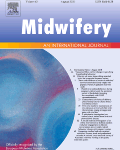
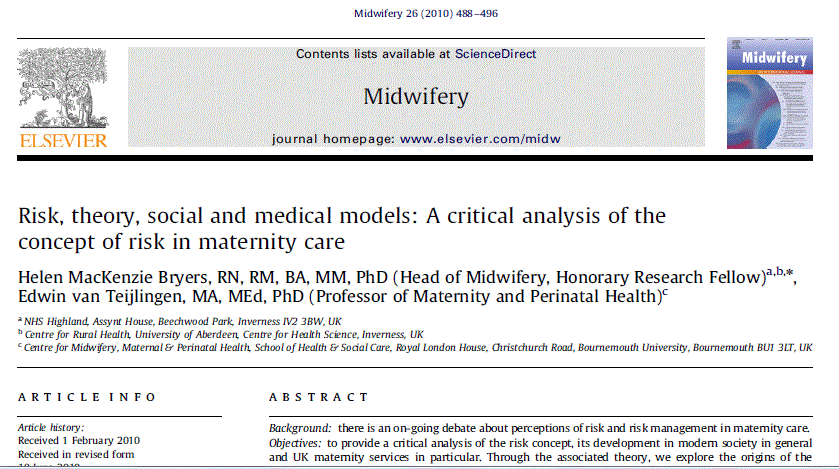
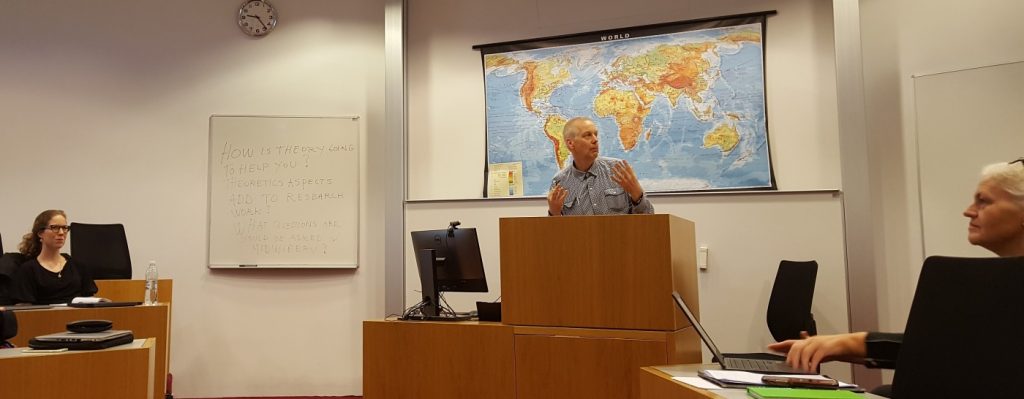
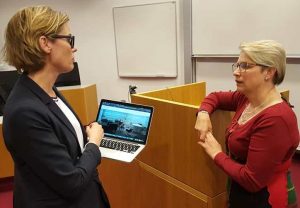
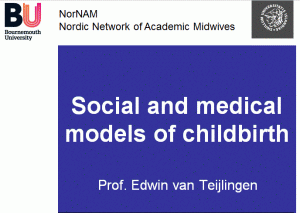

 broad range of knowledge-based interactions between them and the wider world, which result in economic and social benefit to the UK. The current round of funding is referred to as HEIF-6 and runs from August 2017 to July 2022.
broad range of knowledge-based interactions between them and the wider world, which result in economic and social benefit to the UK. The current round of funding is referred to as HEIF-6 and runs from August 2017 to July 2022. Title: What Web Science Tells Us About the Unethical Future of Games
Title: What Web Science Tells Us About the Unethical Future of Games
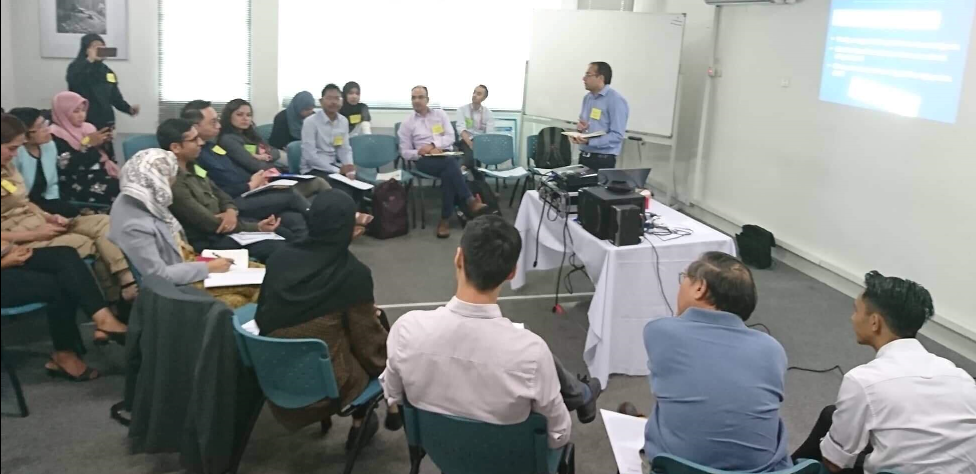

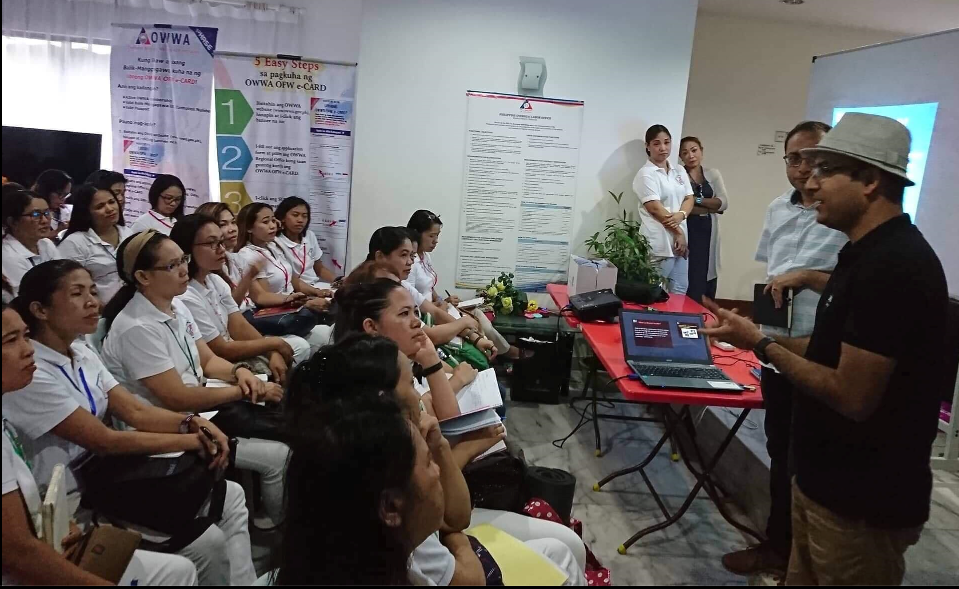
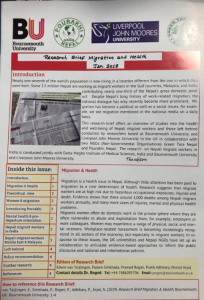












 April’s Café Scientifique – Should we help machines understand and respond to our emotions?
April’s Café Scientifique – Should we help machines understand and respond to our emotions? Postgraduate Research Experience Survey (PRES) 2024 – 2 WEEKS LEFT
Postgraduate Research Experience Survey (PRES) 2024 – 2 WEEKS LEFT Working with The Conversation: online training session – Wednesday 8th May
Working with The Conversation: online training session – Wednesday 8th May Apply for up to £1,000 to deliver an event and take part in a national festival of public engagement with research
Apply for up to £1,000 to deliver an event and take part in a national festival of public engagement with research MSCA Postdoctoral Fellowships 2024
MSCA Postdoctoral Fellowships 2024 Horizon Europe News – December 2023
Horizon Europe News – December 2023